We are having a very productive 2016, including the publication of several peer reviewed papers, the incorporation of two new graduate students as well as the teaching of additional courses for undergraduates at FIU. Here’s a brief summary of the major research milestones for the first half of 2016.
In terms of our research, Ciro Rivera-Casas has published most of his PhD dissertation already, including two major papers in the last months. In the first one, he describes for the first time the presence of histone macroH2A in invertebrates (Rivera-Casas et al. 2016, Epigenetics 2:415-425). Such finding is quite relevant, as this variant was assumed to be an evolutionary invention of vertebrates.
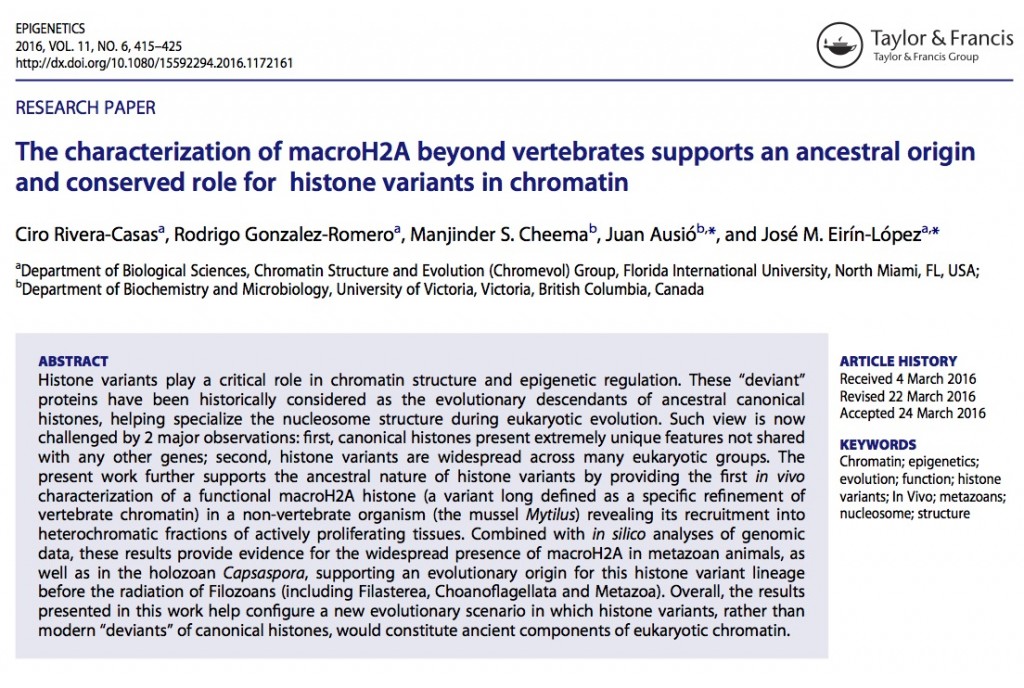
The presence of complex histone variants in the chromatin of invertebrates is further supported by an additional paper by Ciro in which he describes the variant H2A.Z.2 in a mollusc (Rivera-Casas et a. 2016, Biochemistry and Cell Biology in press). Ciro is now working on a methods manuscript gathering all the expertise he has amassed on the study of chromatin in marine invertebrates during his PhD.
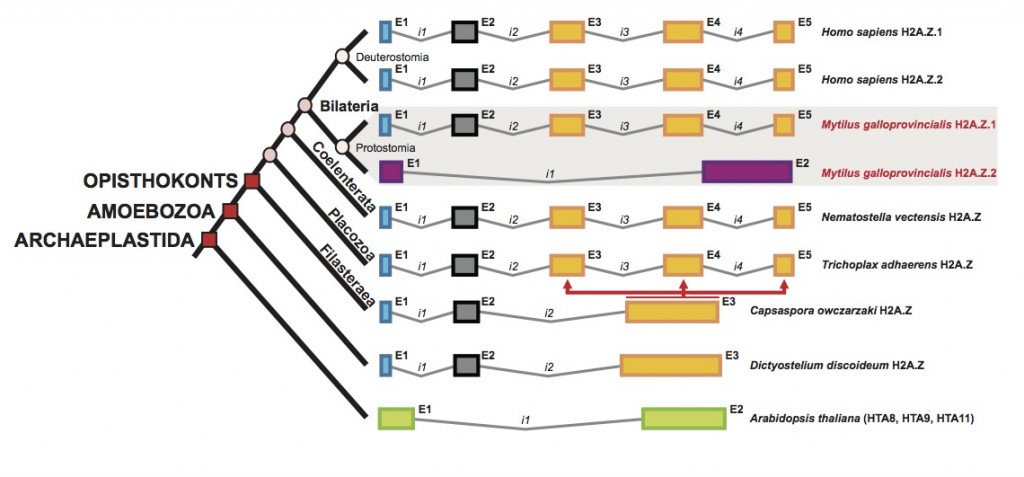
Also progressing with her PhD is Veronica Prego-Faraldo, who is scheduled to defend her dissertation by the end of the present year. Veronica has recently published a major paper in the journal Toxins (Prego-Faraldo et al. 2016, Toxins 8:6) describing the genotoxic and cytotoxic effects of marine biotoxins on mussels. This work is especially interesting for being one of the few available addressing the effect of the biotoxin okadaic acid in sub-lethal concentrations and in vivo.

Lastly, we have collaborated with Chris Nelson and Juan Ausio (Univ. of Victoria, Canada) in a paper studying how histone H3 sequence influence chromatin stability in yeast (Leung et al. 2016, FEBS Letters in press). We have developed all molecular evolutionary analyses included in this work, illustrating the progressive change in H3 protein sequences in different groups of fungi and their relationship/impact on the structure of the nucleosome and chromatin.
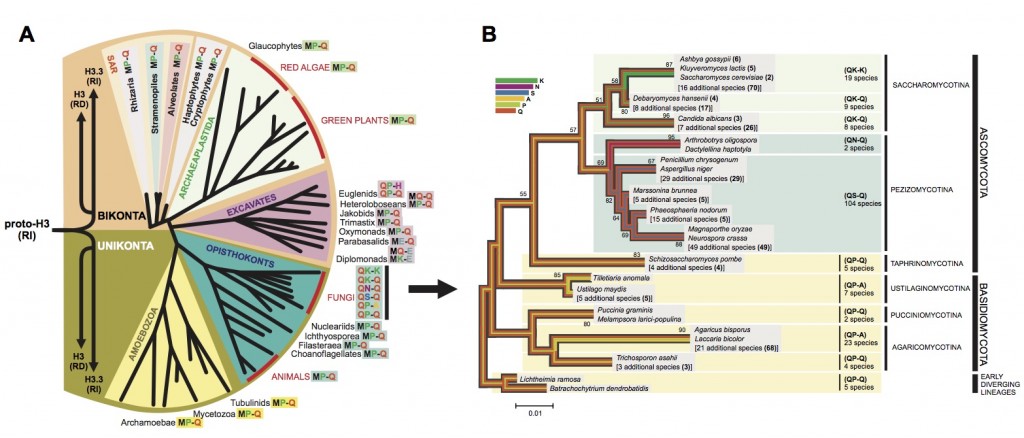
At the present moment our work is focused on wrapping up the last experiments supporting a paper focused on environmental epigenetic responses in oysters. In addition, we’re also keeping busy with the analysis of gene and protein expression data from last’s summer fieldwork at the Florida Keys. This work generated preliminary data to support a pre-proposal for NSF, which was invited for full proposal submission (due soon). In that project, we collaborate with the labs of Deron Burkepile at UC Santa Barbara and Steven Roberts at U. Washington, studying how nutrient and thermal stress affect coral epigenetic responses.
Overall, we are having a hell of a good time pushing all these projects forward. We’re getting really exciting results, we’re getting to know and collaborate with lots of very interesting and smart people and we can feel we are close to round up all this work into successful grant proposals.
That’s all for now, please, keep in touch with our work and see you around.

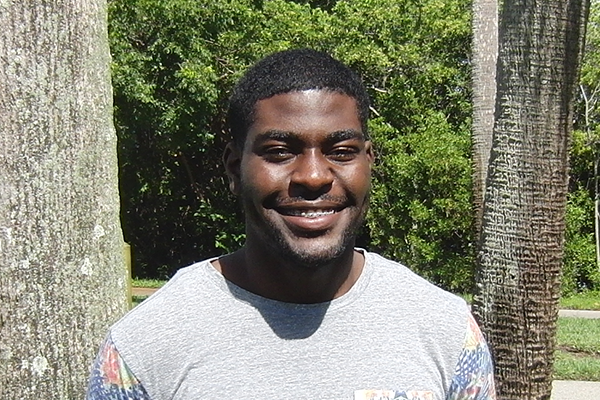
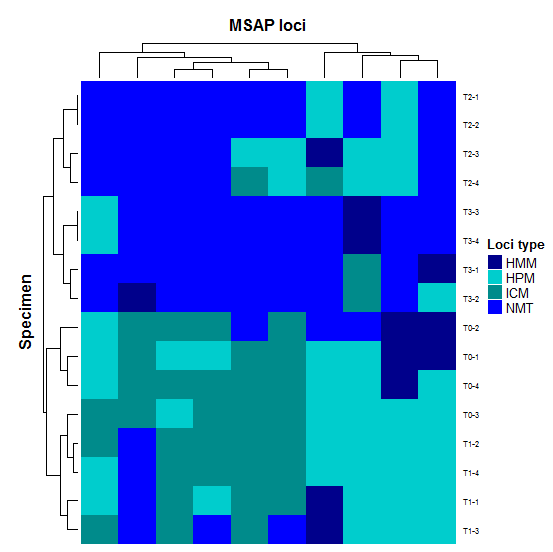
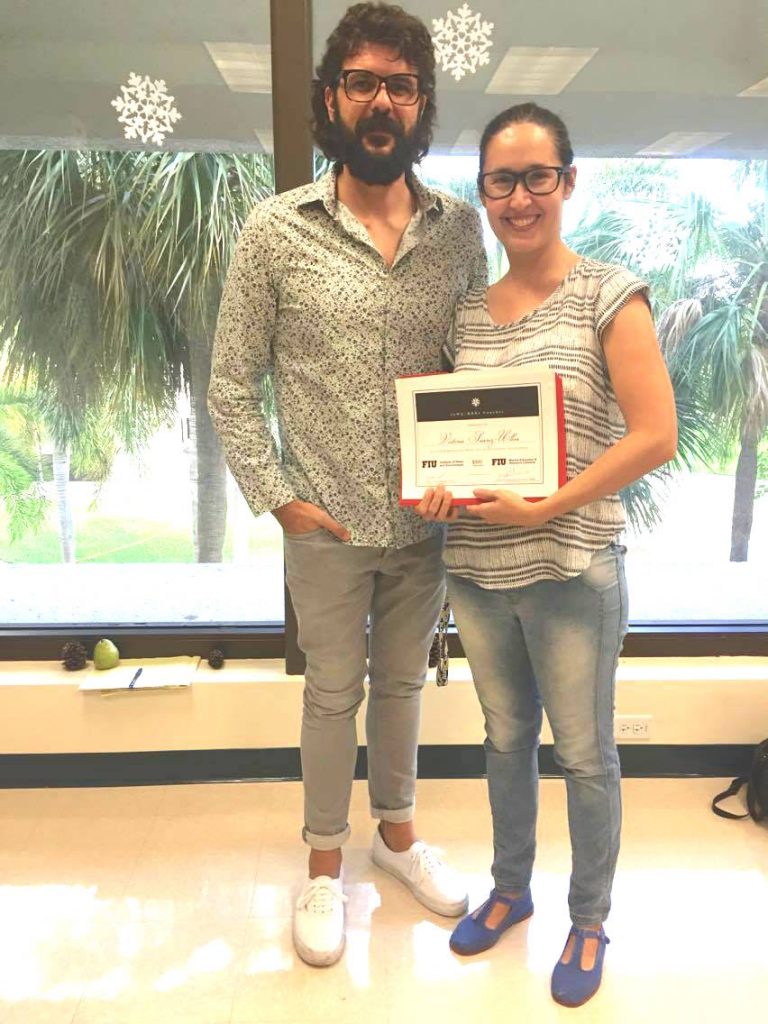
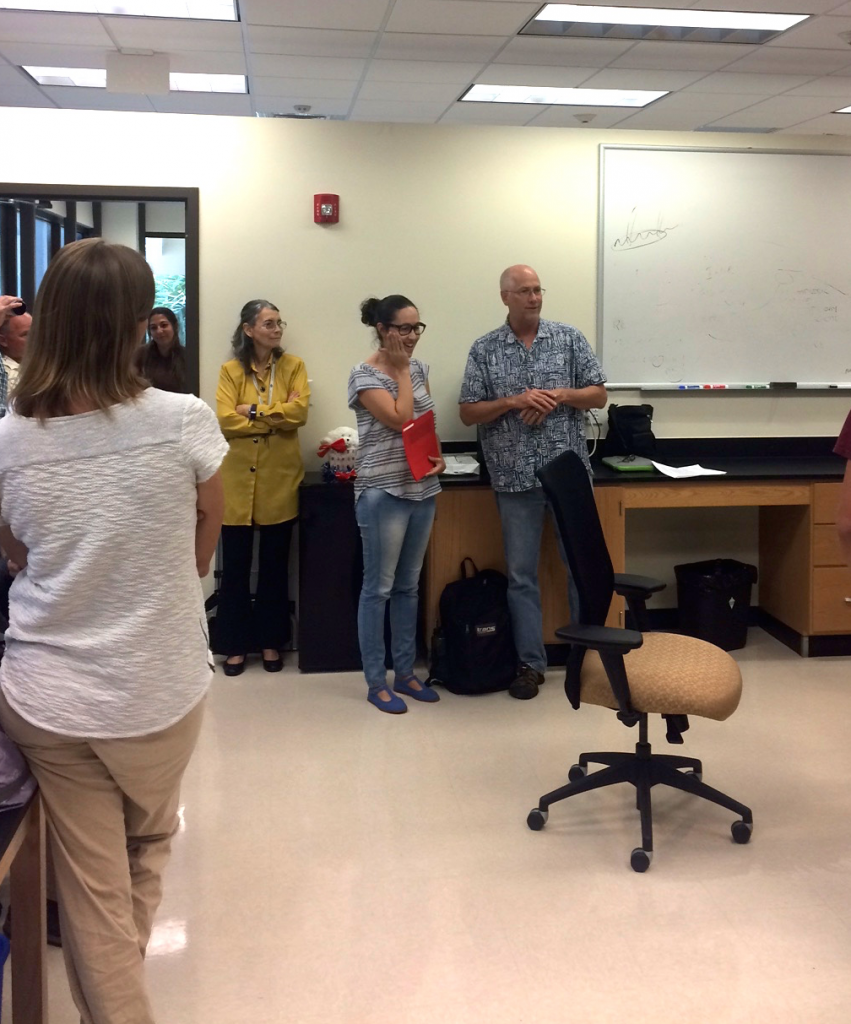
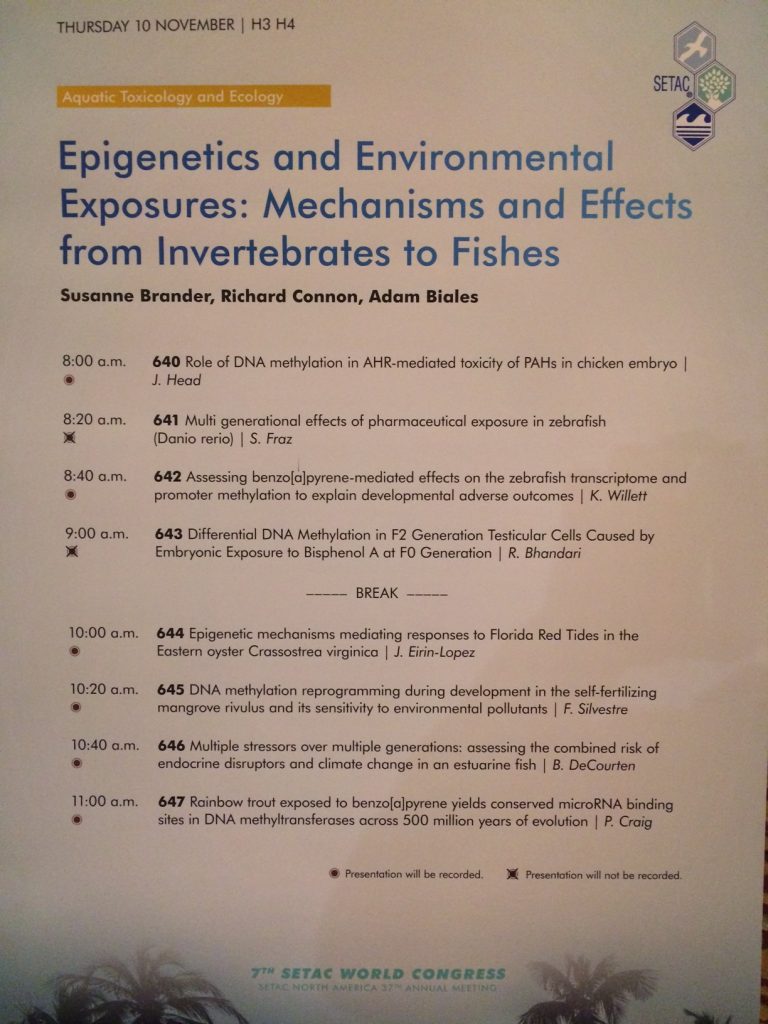
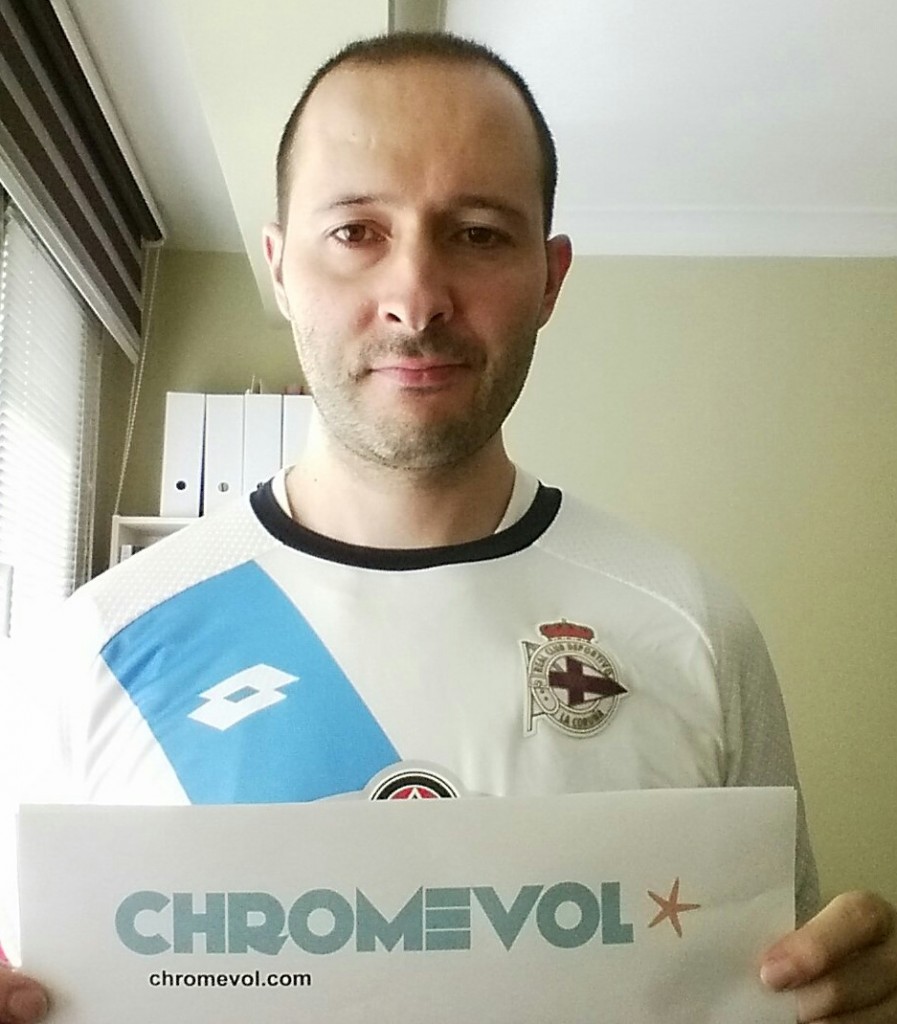




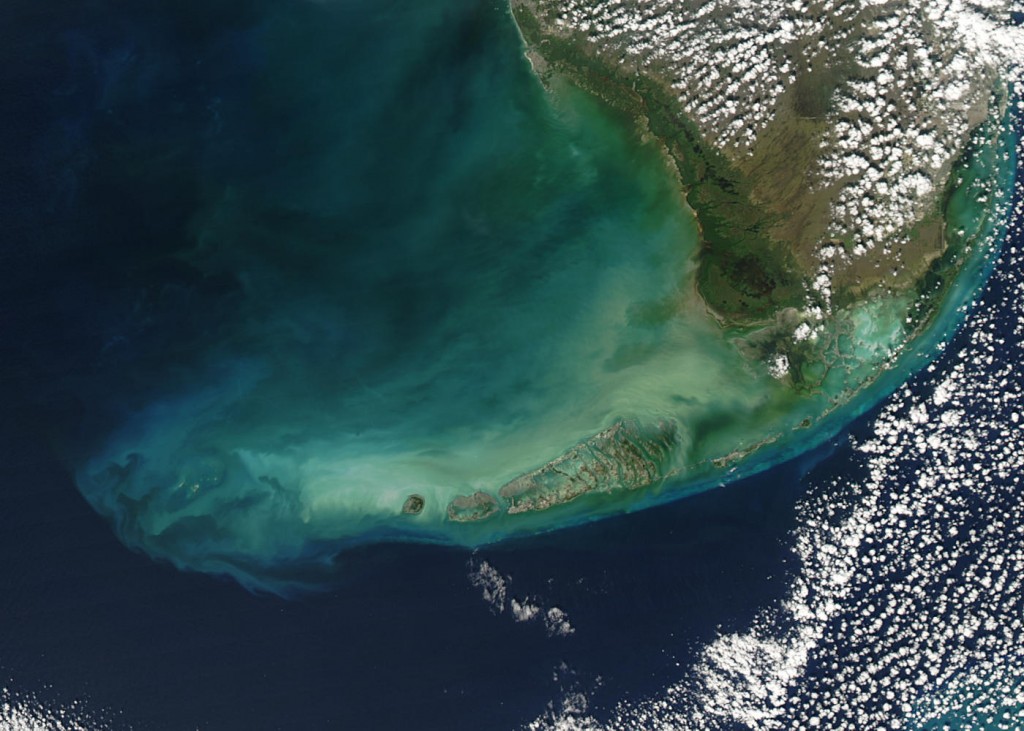 With a $5,000,000 grant from the National Science Foundation support (
With a $5,000,000 grant from the National Science Foundation support (


